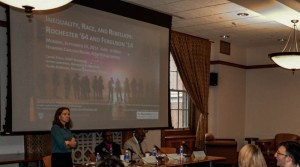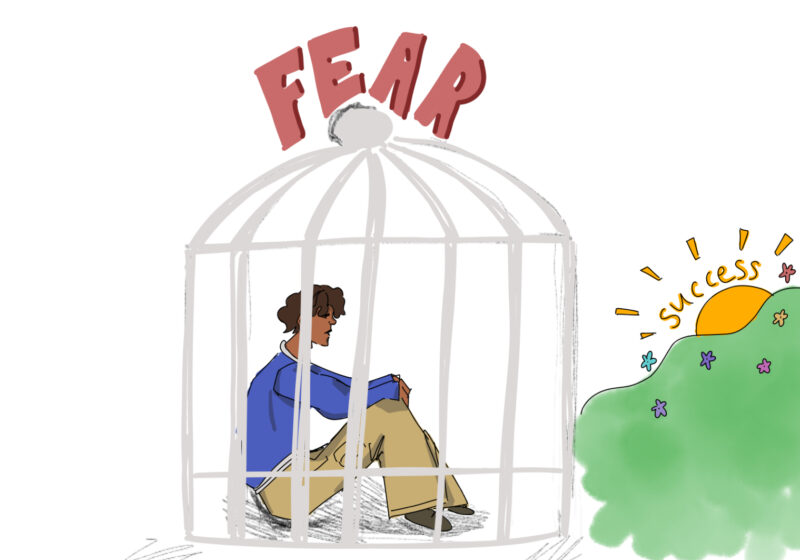This past Monday, a panel organized by Assistant Professor of Anthropology Kristin Doughty used the Rochester Race Riots of 1964 and the recent events in Ferguson, Missouri as a point of departure to discuss the “continuities between these two events, separated by 50 years and 200 miles,” Doughty said. The panel was attended by over 100 students, faculty, and community members.
“I was just delighted that we had so many people,” Doughty said. “I think it really shows something positive […] I think it would have really been an oversight on the part of the University not to have an institutionally sanctioned conversation about the situation in Ferguson.”
Carvin Eison of SUNY Brockport, who developed a New York State Emmy-nominated film titled “July ‘64;” Verdis Robinson of Monroe Community College, who leads tours of the area of Rochester affected by the riots; and James Lawrence of the Rochester Democrat & Chronicle participated in the panel.
The panelists’ discussion emphasized the social contexts that give rise to these racially charged situations as well as the lack of any effective resolution.
Eison opened the discussion with a call to action: “It’s going to be up to you [college students] to do something about where we find ourselves in the world right now,” he said, referencing not only the racially charged conflict in Ferguson but also the recent shooting, allegedly committed an African American youth, of Rochester Police Officer Daryl Pierson, in addition to the racial disparities that provide the social context to these events.
Robinson emphasized his experiences as a black youth growing up in Rochester. From the outset of his portion of the presentation, Robinson emphasized that he would “shed objectivity and really talk personally” about his experiences as a black youth living in Rochester, including traveling to a white suburban school as the only black student and being scrutinized when entering stores.
“We never really make it to doing something about these problems,” Lawrence said, following Robinson’s portion of the panel. “Those problems are still there. When are we going to commit ourselves to it and get it done? […] We have the wherewithal to deal with these issues, but where is the willingness to do it? Something always comes up and takes priority.”
He then discussed one way that action is being taken and spoke at length about the Democrat & Chronicle’s campaign, Unite Rochester. The campaign tackles the linked issues of race and economic deprivation, addressing issues like housing reform and court jury diversification.
Following the panelists’ presentation was a discussion guided by audience members’ questions, which focused on steps to take action and how to address the societal problems raised by the panelists.
“The action orientation is really good,” Doughty said. “But on the other hand it would have been nice if we could have had discussion of more of the connection to the events [in Ferguson].”
Students appreciated the panel, although it differed from their expectations.
Neither freshman Nadia Gribkova nor freshman Amelia Kelly, who attended the presentation together, had previously heard about the Rochester race riots. Kelly noted that ultimately, the panel was less focused on the two events the panel aimed to compare than it was on the general context of racial discrimination and injustice in society.
Senior Jenny Hansler’s perspective also reflected this difference between the panel’s actual theme and what she had anticipated.
“I wish they had more of a connection between the events for the past 50 years and the events transpiring in Ferguson,” Hansler said.
Gribkova said in reference to Robinson’s presentation, “As an international student, I knew about racial problems in American society, but I’d never heard about it from someone who experienced it.”
Remus is a member of the class of 2016.






